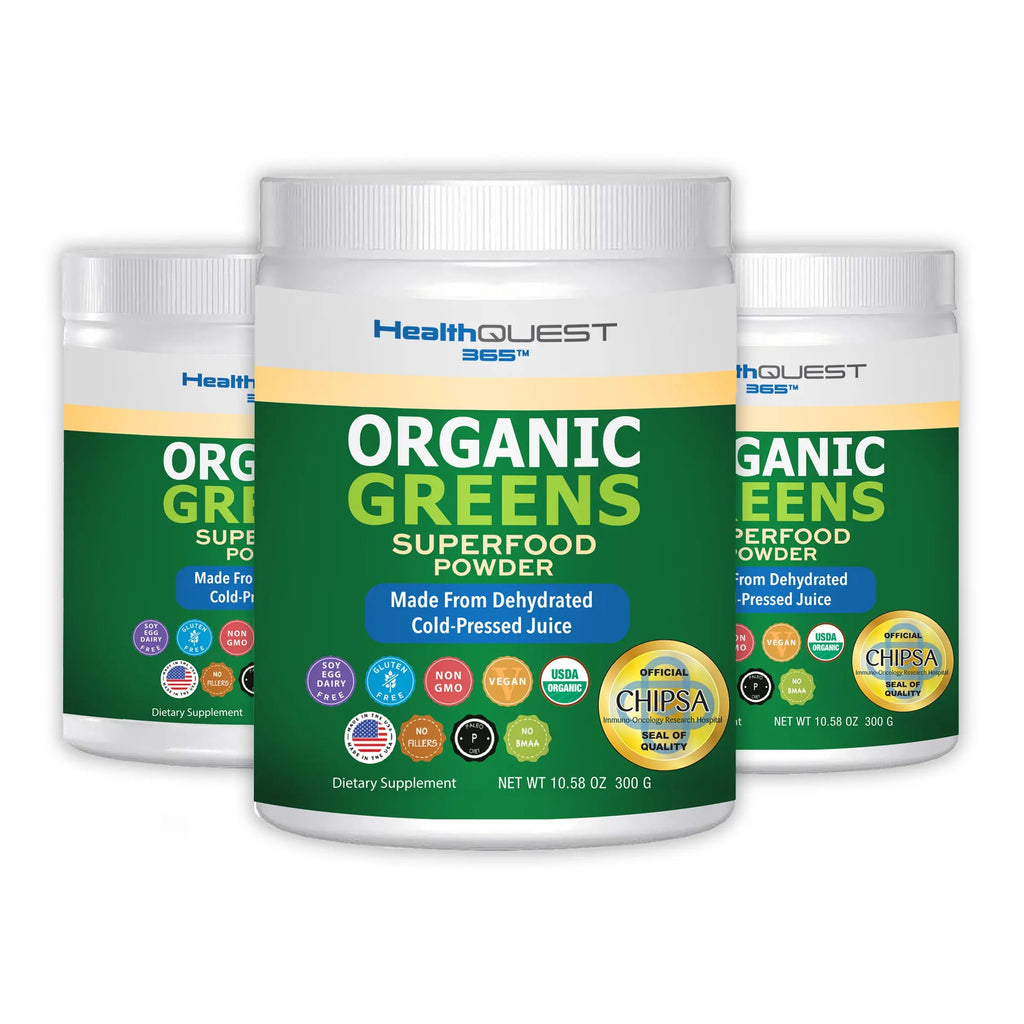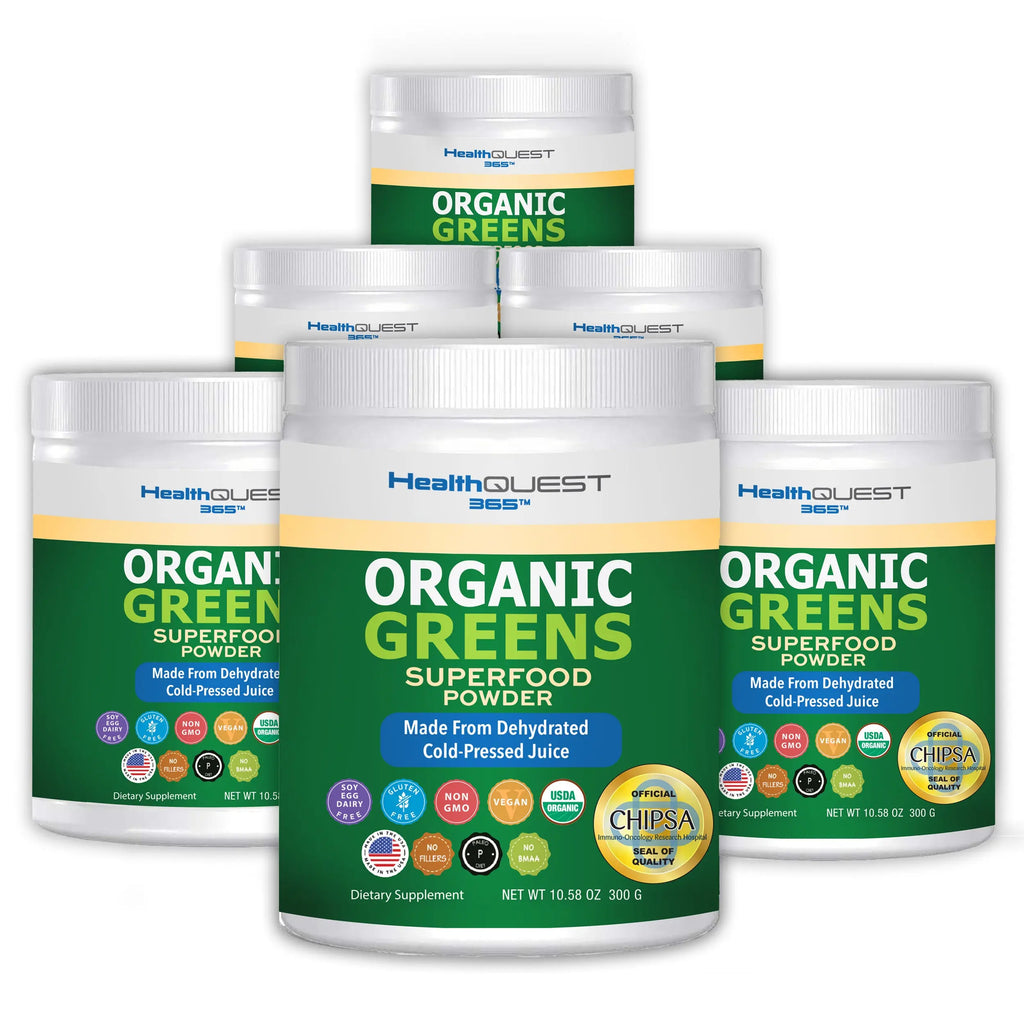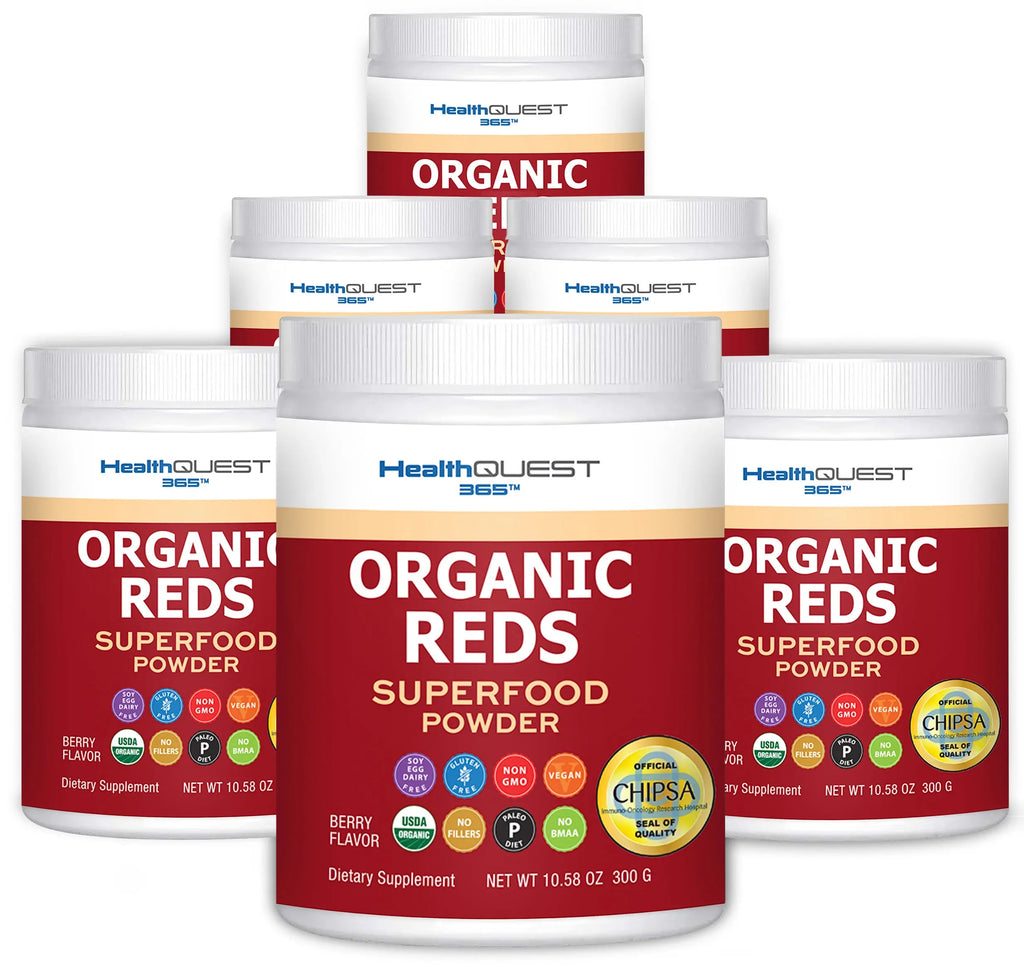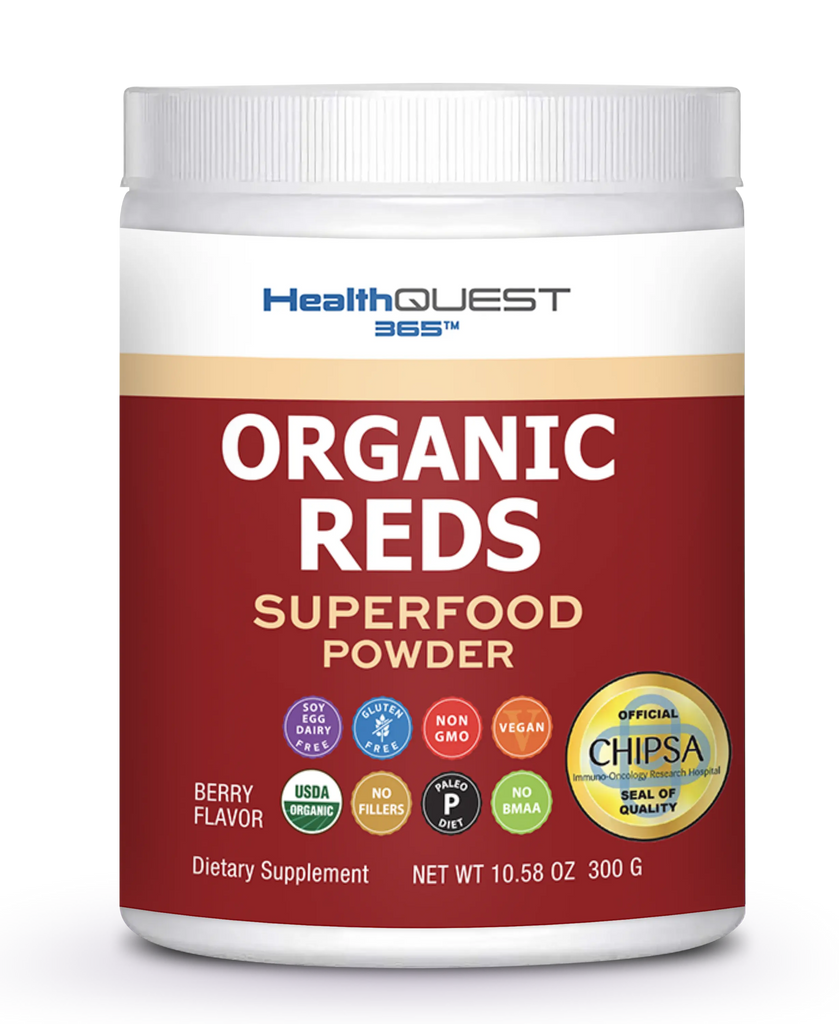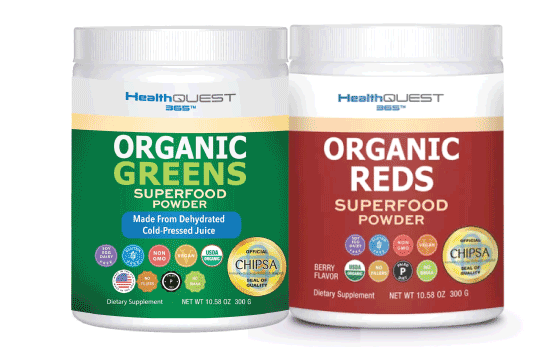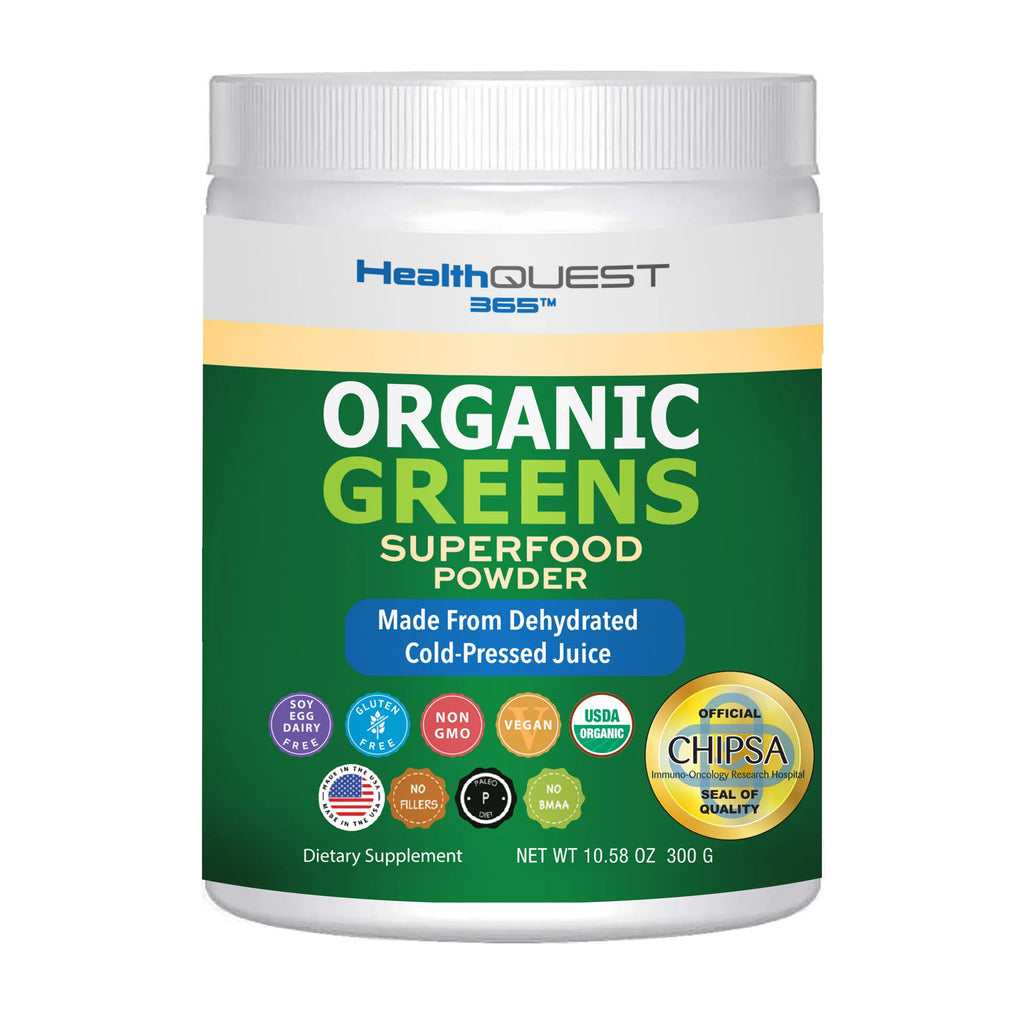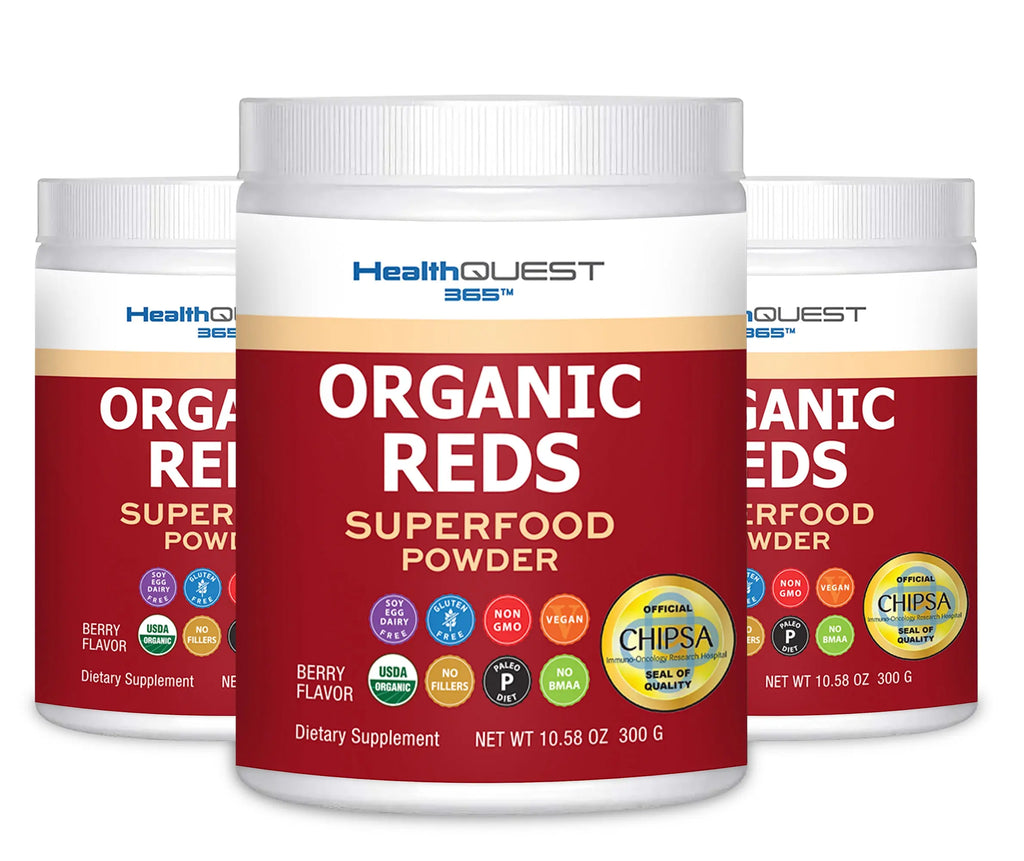It’s about health. It’s about healthy lifestyle. It’s about family™

Unveiling the Truth: Untangling the Evidence behind the Health Benefits of Organic Foods
Forget about just feeding yourself at dinner anymore – our grocery choices have a ripple effect way beyond the kitchen walls. That's why the organic food movement is booming !
These organic foods ditch the artificial stuff – no synthetic pesticides, fertilizers, or genetically modified organisms here. Instead, they bring back the old-school organic farming practices and methods that treat the Earth and everyone on it with respect.
Picture this: you bite into a refreshing watermelon, its juice exploding with sweetness. This isn't just a moment of pure deliciousness – it's the heart and soul of choosing organic.
When you choose organic, you're not just fueling yourself with goodness, you're giving a boost to your local community too. Supporting organic farmers keeps small businesses thriving and fosters a sense of well-being for everyone involved. It's all about connecting with where your food comes from, understanding its journey, and ensuring it's produced in a way that benefits both people and the planet.
Right now, we have a choice – what we eat can impact the environment around us just as much as it affects our bodies. It's a chance to be part of a delicious, sustainable future – one bite at a time.
So, ditch the guilt and join us on this flavorful journey – every choice you make can contribute to a healthier you, and a greener world.

Health Benefits of Organic Foods: A Closer Look
Curious about the hidden health benefits of organic food? Ditch the textbooks and embark on a journey of discovery! Organic offers a treasure trove of benefits that go beyond simply "eating clean."
From farm to table, organic foods whisper promises of a healthier, happier you. So, how exactly does choosing organic translate to a healthier lifestyle?
Let's take a closer look at the benefits of eating organic here:
Ditching the Detrimental: No More Unwanted Chemicals
Imagine organic as your grocery list's guardian, fighting off unwanted chemicals. Traditional farming on conventional farms sometimes uses synthetic pesticides and chemicals, leaving behind traces on your food. But organic farming takes a stand, limiting these harmful substances. This makes your fruit and veggies more nutritious and safer to eat. Choosing organic isn't just about today's meal; it's an investment in a healthier tomorrow, free from unwanted toxins.
Battling the Bad Guys: Organic, an Antibiotic Hero !
Here's a lesser-known secret weapon of organic food: it's a champion in the fight against antibiotic resistance. Using too many antibiotics in farming can strengthen bacteria's resistance to these life-saving drugs.
What happens, you ask? Well, a recent study published in the Veterinary World Journal found that antibiotic residues in food can cause allergies and can cause severe diseases like cancer, anaphylactic shock, kidney failure, bone marrow toxicity, and reproductive disorders, among others.
That's why when you choose organic meat and dairy products, you support farmers who don't use antibiotics in their animals. This helps antibiotics stay effective in treating human diseases.

Give You ALL Our Best Workbooks
Get all the Best Workbooks + Action Guides from our expert
More Than Just Vitamins: A Nutritional Powerhouse !
Organic food's nutritional profile can be a bit of a mystery, but research is revealing exciting secrets. Studies suggest that organic fruits and vegetables might offer a nutritional boost in terms of vitamins and antioxidants.
Think of antioxidants as tiny bodyguards, battling free radicals that can damage your body. So, from the vitamin C powerhouse of organic oranges to the antioxidant-packed organic berries, embracing organic might just be the delicious upgrade your health needs.
How Organic Foods Help the Environment
Organic foods don't just nourish your body, they also help the planet too! It's like switching from a gas-guzzling car to a bike, ditching harmful chemicals for natural solutions, and saving water with clever tricks.
Let's explore how organic farming benefits our environment in more detail.

Building a Thriving Ecosystem
Unlike conventional farming, which can harm delicate ecosystems with chemical use, organic practices actively promote biodiversity and healthy soil. This means creating a haven for various creatures like bees, birds, and insects, who all play crucial roles as pollinators.
This allows us to maintain the natural balance and contribute to a healthy environment. Additionally, a diverse ecosystem strengthens soil quality and our food system, making it more resilient to changing conditions.
Championing Clean Water and Reduced Energy Consumption
Beyond fostering clean water sources, organic farming embraces sustainability by using environment organic farming practices and minimizing its environmental footprint. Think less energy: organic farms ditch high-powered fertilizers for compost or manure, similar to opting for a bike over a car. They also champion water conservation through clever practices like drip irrigation, akin to taking shorter showers – every bit counts for a healthy planet. So, choosing organic isn't just about personal health, it's a delicious bite towards a more sustainable future.
Nutritional Content of Organic Foods: A Deeper Dive into Wellness
What makes organic foods a healthy option for us in the first place? Eating healthy food is understandably a concern for many, but with this stuff about eating organic food or whatnot might seem like just another political agenda to those who don't know much about it. So, it begs the question: is the organic diet really worth it?
Here we discuss some of the many nutritional content present in organic food:

FREE "Mystery Gift"?
Let me stay in touch with you via email and as a thank you - get this FREE gift.. Something others paid over $1,000 for.
(True story)
Antioxidants: The Organic Advantage
Organic fruits, veggies, and grains aren't just another food choice – they're nature's powerhouses packed with antioxidants. These mighty molecules act like tiny shields, protecting your cells from damage linked to chronic diseases.
Unlike their conventional counterparts, organic options often boast higher antioxidant levels. Think juicy berries bursting with anthocyanins, or leafy greens loaded with vitamin C.
In fact, a recent study published in the international scientific journal, Plants (Basel), showed that organic fruits tend to have "more antioxidant capacity" than their non-organic counterparts; while organic vegetables contained more phenolics and anthocyanins, which both have antioxidant and anticancer properties.
That's why when you choose organic, you get a ton of health-boosting nutrients into your diet.
Omega-3 Fatty Acids: The Organic Edge
But the benefits don't stop at plant-based products. Organic meat and dairy items bring their own set of nutritional advantages, notably higher levels of omega-3 fatty acids. These essential fats are crucial for brain health, reducing inflammation, and lowering the risk of heart disease.Organic livestock are often fed a natural diet and graze on grass, which boosts the omega-3 content in their products.

So, when you choose organic milk, cheese, or meat, you're not just opting for a product free from antibiotics and synthetic hormones; you're also choosing a superior source of omega-3s that can support your health in numerous ways.
The nutritional content of organic foods speaks volumes about their benefits. With higher antioxidant levels and omega-3 fatty acids, going organic is more than a dietary choice—it's a step towards becoming a healthier version of yourself.
Whether it's the fruits on your plate or the milk in your morning coffee, choosing organic means choosing a wealth of nutritional benefits that can contribute to a longer, healthier life.

Beyond Organic Aisle Labels: How Your Choices Fuel Thriving Communities
Ditch the generic grocery aisles and impersonal produce sections. Choosing organic isn't just about filling your basket; it's about sharing love and empowering local communities and the farmers who grow our food.
Nourishing Bodies, Building Economies:
Every bite of organic isn't just nourishing your body; it's an investment in the well-being of your community. By choosing to eat organic, you're choosing to support local farmers who use sustainable farming practices. Plus, your hard-earned money stays local and fuels economic growth.
Your grocery choices become a powerful tool, creating jobs, keeping family farms thriving, and bolstering the social fabric of your community. Every organic purchase is a seed planted for a more sustainable future, where local agriculture flourishes alongside healthy ecosystems and human health.
Bridging the Gap: From Farm to Table, and Beyond the Label:
In the fast-paced world of mass-produced food, it's easy to feel disconnected from the source of our sustenance. Choosing organic offers a unique opportunity to bridge that gap. Instead of just grabbing a labeled item from the shelf, shopping organic empowers you to forge a personal connection with your food sources.
It's not just about the label; it's about understanding the journey of your food, from the farmer's dedication to the land to the care put into every step of organic food production itself.
Visit a local organic farm, participate in a CSA program, or simply research your favorite organic brands. This direct relationship fosters trust and transparency, making every meal more meaningful, knowing the care and dedication behind it.
Lifestyle and Ethical Considerations: The Organic Way of Life
Embracing Animal Welfare in Organic Farming
Ever wondered if your food choices can make a difference beyond your own health? Organic farming isn't just about producing food; it's about respecting life in all its forms.
Unlike conventional farming, organic farms prioritize the well-being of animals. Imagine spacious pastures replacing cramped cages, fresh air replacing stale enclosures, and organic feeds nourishing healthy bodies. This humane treatment ensures animals can express their natural behaviors and experience a happier, healthier life.
So, by choosing organic, you're not just filling your basket; you're contributing to a kinder food system.
Every organic purchase becomes a powerful vote for compassion and responsible farming practices. It's a win-win for your plate, your conscience, and the lives of the animals who nourish us


Organic Foods: A Pillar of Personal Health and Safety
The decision to go organic is also a decision to prioritize your health and safety. Organic foods offer a safe haven, free from the potential health risks associated with pesticides, synthetic fertilizers, and genetically modified organisms (GMOs) commonly used in conventional farming.
Organic farmers adhere to strict standards that keep these potentially harmful substances out of your food, offering a cleaner, safer choice for your plate. This translates to peace of mind knowing you're nourishing your body with wholesome ingredients.
But the benefits go beyond physical safety. Organic farming also embraces a philosophy of natural, minimally processed foods. This aligns seamlessly with a healthier lifestyle, potentially reducing the risk of chronic diseases and promoting overall well-being.
Navigating the Challenges and Considerations of Going Organic
The journey towards incorporating organic foods into your lifestyle is filled with numerous benefits, yet it also presents certain challenges that consumers need to navigate. Understanding these hurdles and learning how to make informed choices can make the transition to organic eating smoother and more sustainable.
Cost and Accessibility: Bridging the Gap
One of the most cited challenges of going organic is the perceived higher cost and limited accessibility of organic products. While it's true that organic foods can sometimes come with a higher price tag, this is often reflective of the more labor-intensive methods of organic farming, which prioritize environmental health and ethical practices.
In fact, a study published in the Regional and Business Studies Journal cited three main reasons why people are hesitant to switch to organic food: "lack of awareness on the importance of organic food, low financial viability, and the price of organic food which is relatively high."
However, the gap is narrowing as the demand for organic products increases, leading to more organic crops at competitive prices and greater availability in mainstream supermarkets, local farmers' markets, and online stores. Here are a few strategies to manage costs while embracing organic:
-
Prioritize Your Purchases: Start with organic versions of foods known to have higher pesticide residues, like the "Dirty Dozen."
-
Buy in Bulk: Look for bulk options for organic grains, nuts, and seeds, which can save money in the long run.
-
Choose Seasonal and Local: Seasonal organic produce is often more affordable and fresher, supporting local economies as well.
Making Informed Choices: Understanding Labels and Certifications
With a myriad of labels and certifications adorning food packages, making informed choices can seem daunting. Here's how to decipher these labels and ensure you're getting genuine organic products:
-
Look for Certified Organic Labels: In many countries, organic products must meet strict government standards to be labeled as such. Look for official organic certification seals.
-
Understand the Terminology: Familiarize yourself with terms like "100% Organic," "Organic" (containing at least 95% organic ingredients), and "Made with Organic Ingredients" (containing at least 70% organic ingredients).
-
Research Brands and Farms: Take the time to learn about the brands and farms behind the products. Many are transparent about their farming practices and ethical standards.
Embracing organic foods is a commendable step towards a healthier lifestyle and a more sustainable world. While challenges like cost and accessibility may arise, they are not insurmountable. With strategic planning and informed choices, the transition to organic eating can be both rewarding and achievable.
Final Thoughts About Organic Food
As we wrap up our journey through the vibrant world of organic foods, it's clear that the choice to go organic is more than just a dietary preference—it's a commitment to a healthier lifestyle and a more sustainable planet. From the rich nutritional benefits that bolster our health to the ethical and environmental practices that protect our world, organic foods offer a holistic approach to eating and living.

We've explored how organic farming nurtures our bodies with fewer pesticides and more nutrients, supports animal welfare, and safeguards our environment by promoting biodiversity and reducing pollution. These practices not only enhance our health but also contribute to the well-being of our planet and local communities.
Embracing organic foods such as our Organic Greens is an invitation to participate in a movement that values health, sustainability, and ethical considerations. It's a chance to connect more deeply with the food we eat and the earth that provides it. As consumers, we have the power to drive change with every organic choice we make, supporting a system that benefits us today and ensures a healthier world for future generations.
So, let's continue to make informed choices, embrace the benefits of organic living, and encourage others to join us in this flavorful journey towards a healthier, greener world.
Together, we can make a difference—one organic bite at a time.
FREQUENTLY ASKED QUESTIONS
While it can sometimes be more expensive, shopping locally, buying in season, and being selective can help keep costs down. Additionally, investing in organic produce supports the growth of a sustainable food system and provides long-term health benefits.
Research suggests that with proper investment and the adoption of agroecological practices, organic farming can produce enough food to nourish the global population sustainably.
Organic farming may have some challenges, such as lower yields in certain contexts and increased labor demands. However, the benefits of organic farming for the environment, human health, and social equity often outweigh these challenges.
Look for official organic certification labels and seals on the packaging, such as USDA Organic, which indicate that the product complies with strict organic standards.
Organic standards typically include animal welfare guidelines, such as access to the outdoors, space to roam, and reduced use of antibiotics and hormones. However, it's essential to research individual brands and certifications to ensure they align with your values.

